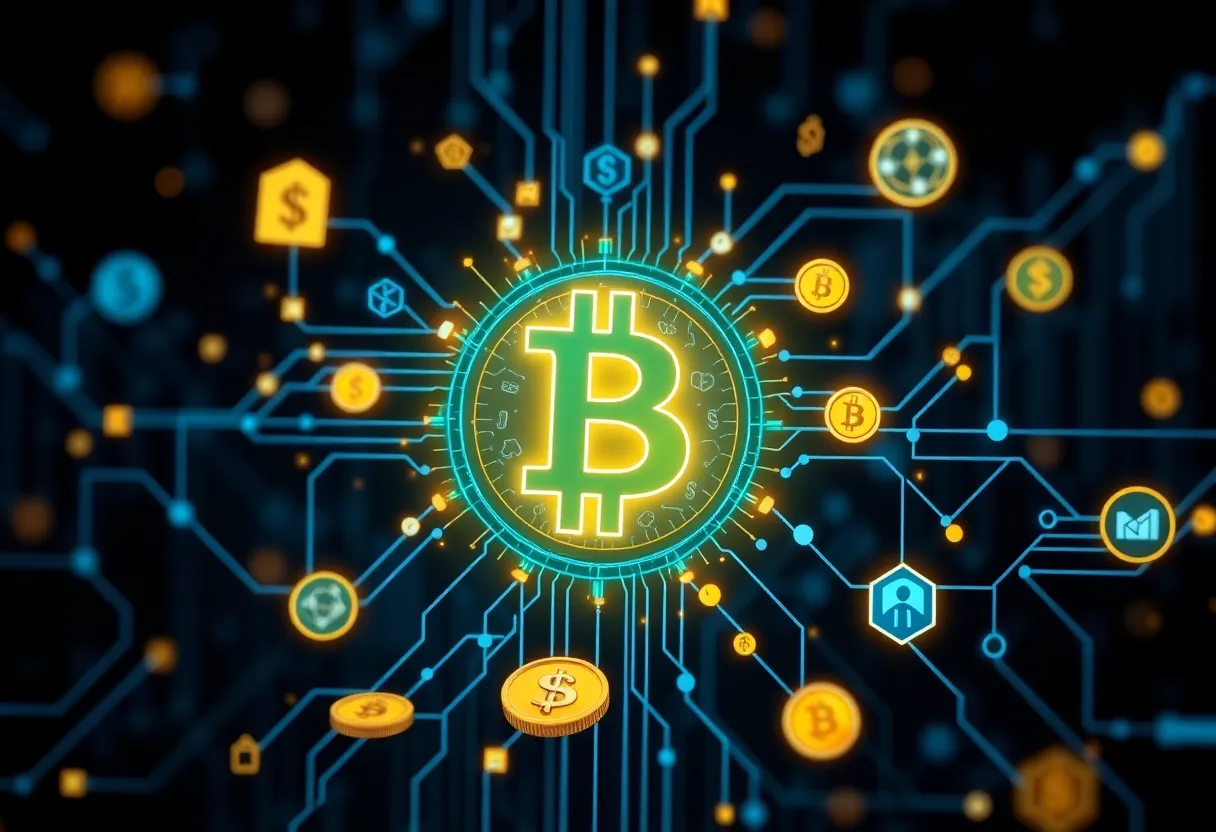News Summary
Tokenization is revolutionizing digital marketing and finance by creating digital tokens for real or virtual assets. This approach enhances customer loyalty, authenticity, and transparency, paving the way for innovative marketing strategies. Businesses are adopting tokenization for loyalty programs, supply chain management, and investment accessibility. The market is predicted to experience significant growth, with various sectors benefiting from improved liquidity and transaction security. However, challenges like regulatory issues and consumer education remain.
The Rise of Tokenization in Digital Marketing and Finance: Transforming Customer Ownership and Investment
It’s easy to get lost in the whirlwind of new tech these days, and one concept that’s really shaking things up is tokenization. This innovative approach is reshaping how businesses connect with their customers through a blend of digital ownership and smart marketing strategies. So, what exactly is tokenization, and why should you care? Let’s break it down!
Understanding Tokenization
At its core, tokenization involves transforming real or virtual assets into digital tokens that work on a blockchain. For instance, think about owning a piece of art or a concert ticket—tokenization gives you proof of ownership and authenticity that can be easily verified. In today’s marketplace, where authenticity is king, that’s more appealing than ever.
One of the main attractions of tokenization is the transparency it provides. With blockchain, everything is laid out for all to see. This level of immutability and traceability is driving more and more companies to jump on the tokenization bandwagon.
Tokenization and Marketing
Many brands are now cleverly adopting crypto marketing strategies designed to tap into the burgeoning trend of digital ownership. How? By creating unique emotional experiences for their customers. From tokenized loyalty programs that reward users with cryptocurrency to exclusive NFTs, businesses are discovering new ways to enhance customer loyalty and retention.
These innovative loyalty schemes have been a game-changer! Imagine going to your favorite cafe and getting digital tokens for every purchase. You can later redeem them for discounts, exclusive merch, or event access. This not only boosts customer retention but also motivates more purchases.
Expanding the Use of Tokenization
But loyalty programs are just the beginning. Brands across various industries are exploring creative applications of tokenization. Take event organizers, for instance. Tokenizing VIP tickets can offer backstage access, while travel companies are creating tokenized luxury accommodations. Sounds fancy, right?
Subscription services, too, are embracing this change. Customers can trade or sell unused tokens, allowing flexible access to services and enhancing customer satisfaction.
Tokenization in Supply Chains
Tokenization isn’t just transforming customer experiences; it’s also making waves in supply chain management. By tokenizing products, companies can assure authenticity—a critical feature in the luxury goods market. Imagine buying a designer handbag and having a digital token that verifies it’s the real deal!
Plus, tokenization has a unique ability to build communities among consumers by rewarding them for involvement. Engaging customers in feedback, funding, and decision-making processes creates a loyal base, fostering long-term relationships.
The Booming Tokenization Market
The growth prospects for tokenization are impressive! The global tokenization market is forecasted to soar from $2.81 billion in 2023 to $9.82 billion by 2030. This growth is largely attributed to the democratization of access to investments, enabling fractional ownership opportunities and boosting liquidity across various markets.
Tokenization in Finance and Beyond
In the realm of finance, tokenization enhances asset liquidity and enables secure, transparent transactions by utilizing blockchain technology. Various sectors like healthcare and real estate are already witnessing transformative benefits. Companies can issue tokens to represent ownership of real or digital assets, making it easier for people to trade and access financial markets.
Moreover, with its ability to represent cash, investments, and property as tokens on a blockchain, tokenization offers an efficient pathway to accessing capital for businesses and consumers alike.
Challenges and Future Prospects
However, it’s not all smooth sailing. The adoption of tokenization must navigate through regulatory uncertainties and the need for consumer education. But with these challenges come opportunities for growth. By decreasing the number of intermediaries in transactions, tokenization can minimize costs significantly.
Final Thoughts
As companies like JPMorgan and Goldman Sachs embrace blockchain technology, it’s clear the future of asset tokenization is bright. The potential applications are vast, and we’re likely just scratching the surface. So, next time you hear about tokenization, remember—it’s not just a tech buzzword; it’s a concept that’s becoming a dynamic part of our daily lives!
Deeper Dive: News & Info About This Topic
HERE Resources
Additional Resources
- Forbes: The Growing Importance of Tokenization in Digital Marketing and Business Operations
- Wikipedia: Tokenization
- Deloitte: Tokenization in Financial Services
- Google Search: Tokenization in Digital Marketing
- Financial Express: The Age of Tokenization – Impact on Business Strategies
- Google Scholar: Tokenization in Finance
- TechRadar: What is Asset Tokenization?
- Encyclopedia Britannica: Tokenization
- American Banker: Tokenization Soars as Financial Institutions Seek a More Secure Interface
- Google News: Tokenization in Finance
Author: STAFF HERE NORTHVILLE WRITER
The NORTHVILLE STAFF WRITER represents the experienced team at HERENorthville.com, your go-to source for actionable local news and information in Northville, Wayne County, and beyond. Specializing in "news you can use," we cover essential topics like product reviews for personal and business needs, local business directories, politics, real estate trends, neighborhood insights, and state news affecting the area—with deep expertise drawn from years of dedicated reporting and strong community input, including local press releases and business updates. We deliver top reporting on high-value events such as the Summer Concert Series, Tunes on Tuesday, and the Northville Farmers Market. Our coverage extends to key organizations like the Northville Chamber of Commerce and Northville Community Foundation, plus leading businesses in automotive, software, and retail that power the local economy such as Gentherm, Reliable Software, and Attendance on Demand. As part of the broader HERE network, including HEREDetroitMI.com, HEREGrandRapids.com, HERENovi.com, and HEREPlymouth.com, we provide comprehensive, credible insights into Michigan's dynamic landscape.






